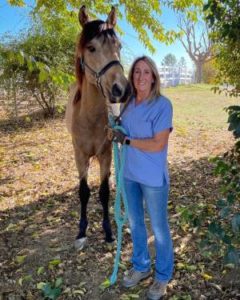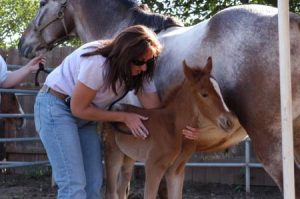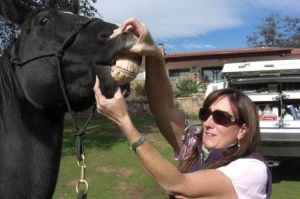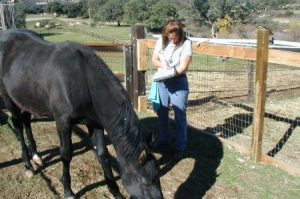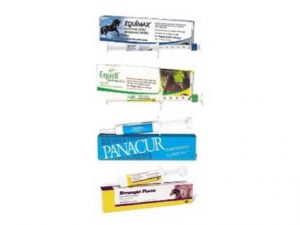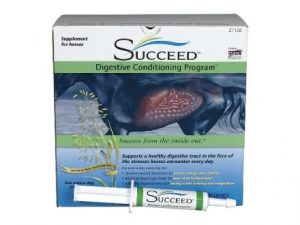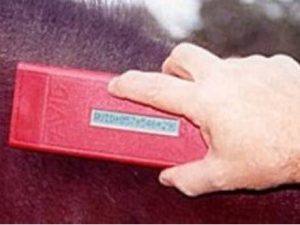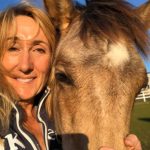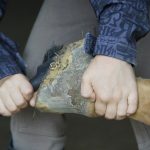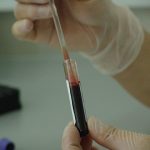- West Nile Virus
- Eastern and Western Encephalitis
- Tetanus
- Rabies
- Influenza
- Herpes(Rhinopneumonitis)
- Strangles
Not only are vaccines effective, but they are also quite safe. Years of research and development occur prior to the vaccine being tested in large numbers of horses in an effort to satisfy USDA requirements. However, occasionally a vaccine may not protect your horse for a variety of reasons:
- Compromised immune system (stress)
- Exposure to disease prior to vaccination
- Overwhelming challenge by infectious agent
- Improper handling and storage of the vaccine
Because every horse is unique, Dr. Garfinkel will perform an examination prior to vaccination to be sure it is healthy. Her knowledge of the proper methods to handle and store vaccines reduces the potential for a vaccine to be ineffective.
Since vaccines stimulate an immune response, it is not uncommon for horses to experience mild and transient side effects shortly after vaccination similar to what you might expect after human vaccination. These may include:
- Low grade fever (<102° F)
- Decreased appetite
- Fatigue or decreased energy
- Injection-site tenderness
These signs should dissapate within approximately 24 hours following vaccination. If they do not, a consultation Dr. Garfinkel may be warranted.
Dr. Garfinkel should be contacted immediately if signs of hives, difficult breathing, or colic develop soon after vaccination, as these may indicate a more serious vaccine reaction.
Vaccine manufacturers utilize various processes to filter the vaccine during the manufacturing process. Ultrafil™ Purification Technology, utilized in the Vetera® vaccines, is a unique filtration
process that eliminates most of the extraneous (or unnecessary) proteins and/or cellular debris from the vaccine, helping to minimize reactions.
To minimize vaccination reactions, allow Dr. Garfinkel to administer the vaccine. She knows the medical history of your horse, proper vaccine handling and administration techniques.
To make your horse more comfortable after vaccination:
- Walk or allow free-choice exercise for approximately 20-30 minutes following vaccination. This increases blood flow to the muscles helping to reduce stiffness.
- Minimize strenuous activities for 2-3 days following vaccination. This allows time for a good immune response, as well as dissipation of any "normal" post-vaccination responses.
- If mild injection site tenderness occurs, topical hydro- or cold therapy will help.
- Non-steroidal anti-inflammatories may be warranted to make your horse more comfortable. Contact Dr. Garfinkel prior to administering any medication following vaccination.

